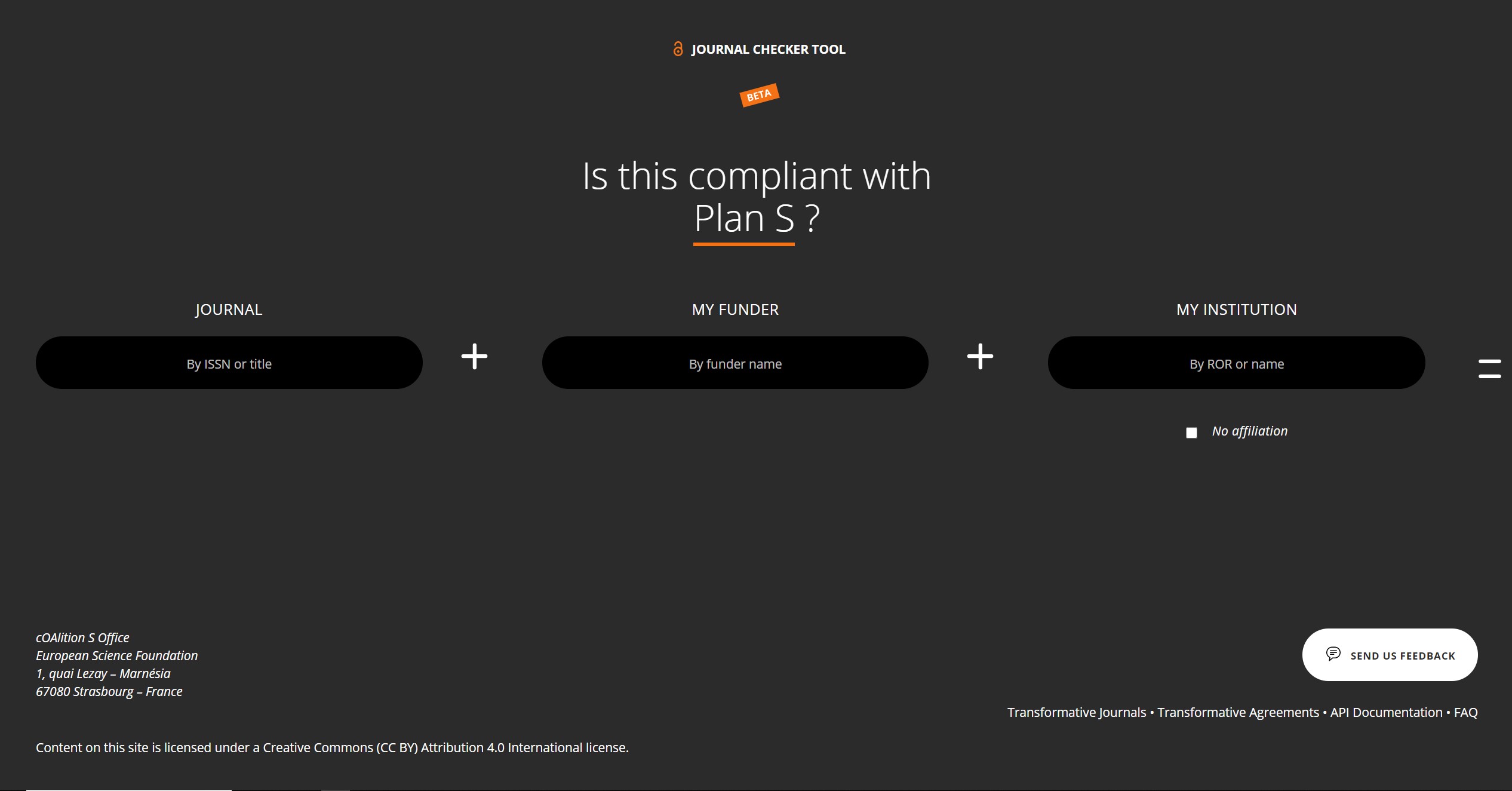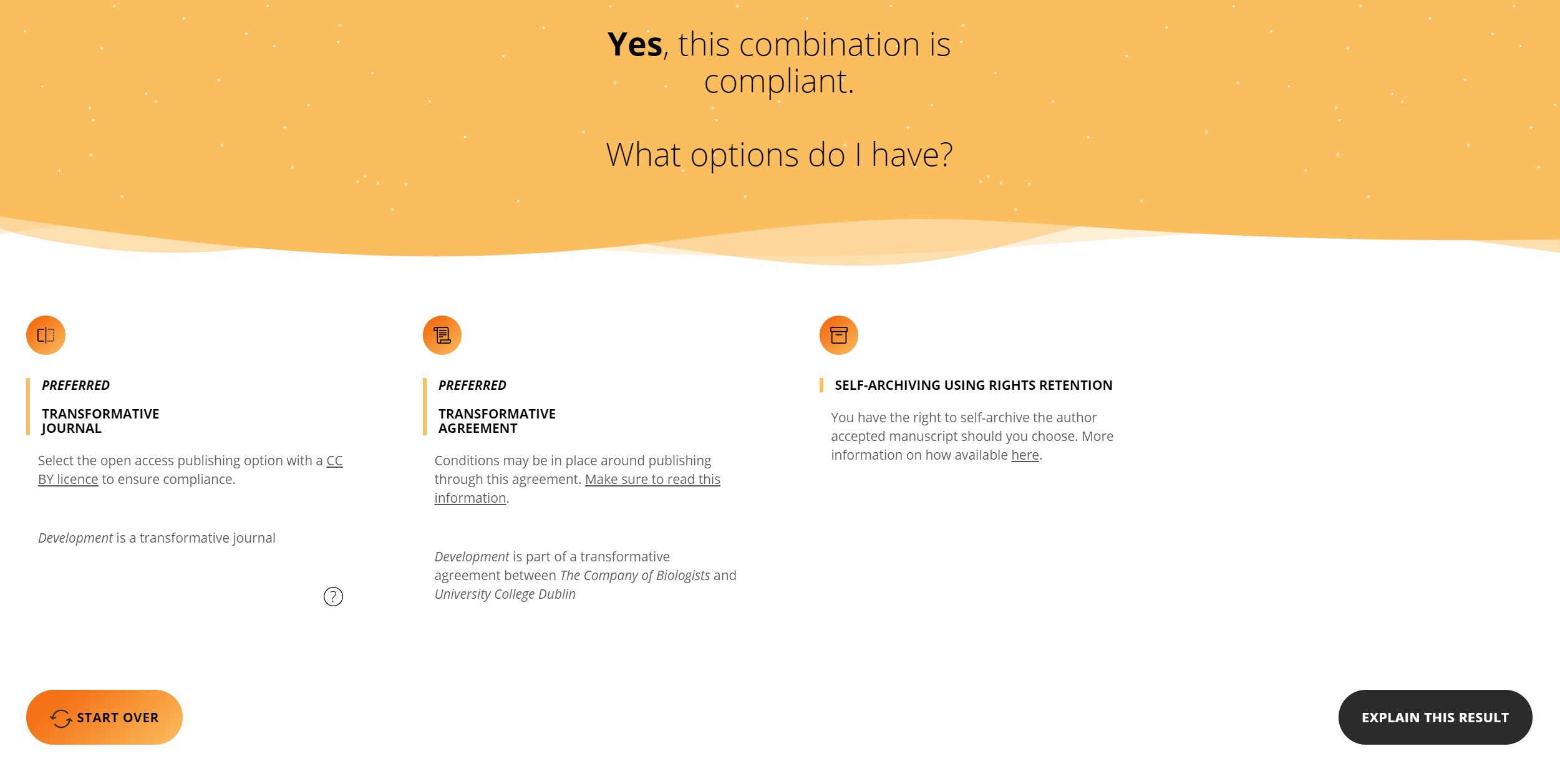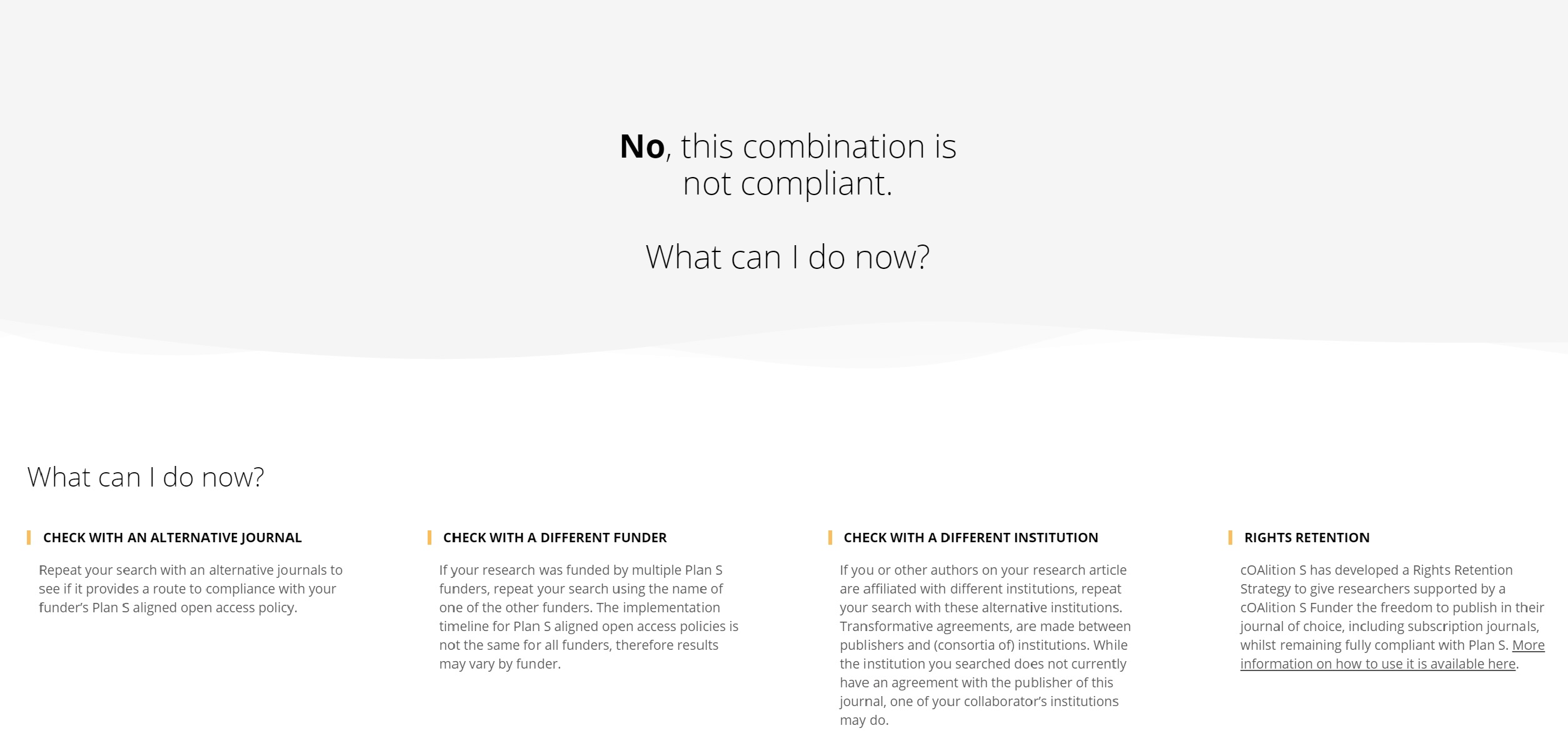Go back
Unboxing the Journal Checker Tool
18/11/2020
We are delighted that the cOAlition S funded Journal Checker Tool (JCT) is released today. Although it is in open testing mode, this is a big milestone for us: we’re releasing the tool now to give you, the Plan S community, an opportunity to road test it.
The JCT is designed to support all researchers funded by a cOAlition S member in finding Plan S compliant “routes” through which to publish their research articles open access.
How does the Journal Checker Tool work?
Plan S allows three routes to compliance: through fully open access venues; through self-archiving, and through so-called transformative arrangements (which includes transformative agreements and transformative journals).

The Journal Checker Tool (JCT) allows a researcher to enter the name of their funder, the institution they are affiliated with, and the journal to which they plan to submit an article. The tool then checks if this combination of funder, institution, and journal offers any route to compliance with Plan S. It simultaneously checks 4 options:
- whether the journal is fully open access, in line with Plan S,
- whether it is included within a transformative agreement subscribed to by that particular institution,
- whether it is a transformative journal; or
- whether self-archiving is an available option, either via the publishers self-archiving policy or via the cOAlition S Rights Retention Strategy (RRS).
Our current criteria for compliance centres on whether a particular journal enables a researcher to publish an article under a CC BY licence without embargo, and retain sufficient copyright to enable compliance with open access policies.

On the results page, a researcher will be shown all the available routes that enable compliance based on the combination of data they have entered. Where there are multiple routes to compliance available, it is for the researcher to choose which route to proceed by, although the JCT does visualise cOAlition S’s preference for routes that enable the Version of Record to be made open access. (See also related blog post: “4 things you should know about the Rights Retention Strategy and the Journal Checker Tool).
Where no route to compliance is available with the combination entered, the Journal Checker Tool provides suggestions on how to edit the search – for example, seeing if a coauthor at a different institution has access to a TA – to find a combination that enables compliance. Any route that doesn’t enable compliance isn’t shown within the result. However, you can see why the JCT thinks these routes don’t enable compliance via the “Explain Result” dropdown menu.

The data used in the JCT calculation is large and distributed across the global network. The JCT relies upon data from the Directory of Open Access Journals, Shareyourpaper.org Permissions, the ESAC Transformative Agreement Registry, Crossref and the Research Organization Registry Community (ROR). To improve the performance of the JCT we use local caches of some of this data that is regularly refreshed. As part of the development of the JCT we’ve developed an index at the journal and institution level of Transformative Agreement listed in the ESAC Agreement Registry and a list of cOAlition S approved Transformative Journals. These data sources are released today as part of the beta launch, under a CC-0 licence.
The beta phase: How can you help to improve the JCT?
As mentioned, the test phase is very important in getting feedback from the community about the tool. We’ll be using this feedback to improve the tool in the coming weeks and inform our development plans for the first half of 2021.
A vital part of the feedback will be improving the freshness of the source data that the JCT is dependent on. Getting this information will be a continuous process: as journals change policies or publishers; as transformative agreements are signed or renewed; and as new journals are formed. We have processes in place to monitor for some of these changes, others will require action from publishers and consortia such as applying to DOAJ or depositing a new transformative agreement in the ESAC Registry.
However, we welcome contributions from the community in this process by contacting us where they identify data issues that affect compliance results being shown. The JCT is a partnership between data sources, with data updates being made by the data sources themselves. For those looking to notify us of individual data errors please use the “Send us feedback” button on the website. For publishers or consortia looking to make changes at the portfolio level, we have a separate blog post on how to go about this.
What’s next?
The focus of the beta phase is on iterative changes to improve usability and data freshness. From January 2021, we’ll be working on new functions for the tool and building in the additional requirements that have been set out within the Plan S technical guidance.
Let us use mirror journals as an example. Plan S states that “Open Access journals must not have a mirror/sister subscription journal with substantial overlap in editorial board to avoid business models charging for both access and publication. Such journals will de facto be considered ‘hybrid’ journals.” Right now, we are not flagging these journals as non-compliant via the fully open access route, but that will change.
Another example is customising results based on cOAlition S Organisation’s implementation roadmap. While we’ve pulled in all organisation’s names, currently the only results that are tied to funder’s implementation plans are those relating to the Rights Retention Strategy (RRS). So there is more work to do to reflect organisations implementation of Plan S.
We’ve attempted to build a tool that cuts through the perceived and real complexities within Plan S, to support cOAlition S members’ and their researchers in delivering immediate open access to research. A tool that is able to respond to changes within the scholarly publishing environment and its approaches to delivering open access. A tool that will encompass your feedback.
We look forward to continuing this work with you and enabling the delivery of Plan S.
About the JCT development
The JCT was developed by Cottage Labs, in partnership with Antleaf consultancy, with the data providers Shareyourpaper.org Permissions and Directory of Open Access Journals (DOAJ). The project is overseen by a core team of Hannah Hope (Wellcome), Nora Papp Le Roy and Caroline Lambert (ESF) with support from the JCT Implementation Group (a subgroup of cOAlition S members).
Hannah Hope
Hannah Hope is the Open Access Project Manager at Wellcome. Her work focuses on ensuring Wellcome-funded researchers have the tools and support they need to ensure their research publications are open and reusable by all. This includes the implementation and monitoring of Wellcome’s OA policy and the infrastructure projects Europe PMC and the cOAlition S Journal Checker Tool. Prior to Wellcome, Hannah worked as a science communicator and publisher at a learned society. Hannah has a PhD in cell biology.
View all posts by
Hannah Hope





